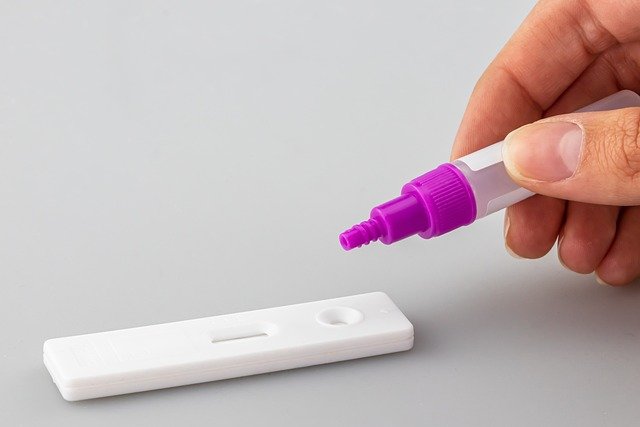Overview of sperm donation programs and their processes in Romania
Sperm donation in Romania plays a significant role in various medical donation programs aimed at helping individuals and couples facing infertility issues. This informative overview takes a detailed look at how sperm donation works, the criteria for donors, and the potential benefits for both donors and recipients. Understanding these aspects can provide valuable information for those considering participating in such programs.

Sperm donation programs in Romania provide an essential service for individuals and couples facing fertility challenges. These programs facilitate the process of conception for those who cannot conceive naturally due to various medical conditions, single women seeking motherhood, or same-sex female couples. The donation process in Romania follows specific protocols that ensure the safety and well-being of all parties involved while adhering to national regulations governing assisted reproductive technologies.
Understanding the Basics of Sperm Donation Programs in Romania
Romania’s approach to sperm donation operates within a framework that balances medical necessity with ethical considerations. Sperm donation centers in Romania typically operate as part of fertility clinics or specialized reproductive medicine facilities. These centers maintain donor registries and follow strict medical protocols to ensure the quality and safety of donated samples.
Romanian law permits sperm donation but with certain restrictions. Unlike some European countries, Romania maintains a semi-anonymous donation system where recipients can access non-identifying information about donors, while donors’ identities remain protected. This framework aims to protect the privacy of donors while providing recipients with essential medical and genetic information about their potential child’s biological father.
The Romanian healthcare system recognizes sperm donation as a medical procedure rather than a commercial transaction. This perspective shapes how donation programs operate, emphasizing the altruistic nature of donation while still acknowledging the time and effort donors contribute through modest compensation structures.
The Process and Requirements for Sperm Donation in Romania
The journey to becoming a sperm donor in Romania involves several carefully designed steps to ensure only suitable candidates participate. Potential donors must typically be between 18 and 40 years old, although some clinics may have more specific age requirements. They must be in good physical and mental health, with no history of hereditary diseases or genetic disorders that could be transmitted to offspring.
The screening process is thorough and multi-staged: 1. Initial consultation and application 2. Comprehensive medical examination 3. Genetic testing for hereditary conditions 4. Infectious disease screening (HIV, hepatitis, STIs) 5. Sperm quality analysis 6. Psychological evaluation
Successful candidates who pass all screening phases can proceed to donation. The actual donation process requires multiple visits to the clinic over several months. Donated samples are quarantined for a minimum period (typically 180 days) before being released for use, during which time donors undergo additional testing to ensure sample safety.
Romanian regulations require donors to provide informed consent regarding the use of their genetic material. This includes understanding that they relinquish all legal rights and responsibilities to any children conceived through their donation, though specific details may vary between clinics.
Potential Benefits of Participating in Sperm Donation
Donors in Romanian programs often cite altruistic motivations as their primary reason for participation. The knowledge that one is helping individuals or couples achieve their dream of parenthood can provide significant psychological satisfaction. Many donors report positive feelings associated with contributing to family formation for those who might otherwise be unable to have children.
While commercial sperm donation is not permitted in Romania, donors typically receive compensation for their time, effort, and travel expenses. This compensation is structured as reimbursement rather than payment for the genetic material itself, aligning with European ethical frameworks for gamete donation.
Participation in donation programs also provides donors with comprehensive health screenings at no cost. These examinations can identify previously unknown health conditions, offering an indirect health benefit to donors who might not otherwise undergo such thorough medical evaluations.
Legal Framework and Donor Rights in Romania
Romanian legislation governing sperm donation operates within the broader European context while maintaining certain national distinctions. The legal framework addresses critical aspects such as donor anonymity, recipient eligibility, and the rights of children born through donation.
Current Romanian regulations maintain a balanced approach to donor anonymity. While donors’ identities are protected from recipients, non-identifying information (such as physical characteristics, education level, and medical history) is made available to recipients. Children born through donation may access this non-identifying information upon reaching adulthood, though full identity disclosure remains restricted.
Donors sign legal agreements relinquishing parental rights and responsibilities toward any children conceived using their genetic material. These contracts protect donors from future claims of paternity or financial obligations while providing legal clarity for all parties involved in the donation process.
Recipient Selection and Treatment Procedures
In Romania, sperm donation recipients undergo their own screening process to ensure medical suitability for fertility treatment. Eligible recipients typically include heterosexual couples with male factor infertility, single women, and female same-sex couples, though specific clinic policies may vary.
The matching process between donors and recipients considers physical characteristics and genetic compatibility. Recipients typically select donors based on physical traits (height, eye color, hair color), educational background, and medical history, aiming for a donor whose characteristics align with their preferences or the non-contributing partner’s features.
Treatment procedures using donor sperm in Romania generally follow one of two paths: 1. Intrauterine insemination (IUI) - a less invasive procedure where prepared sperm is placed directly into the uterus 2. In vitro fertilization (IVF) with donor sperm - used when additional fertility factors require more advanced intervention
Ethical Considerations and Future Developments
The ethical landscape surrounding sperm donation in Romania continues to evolve as societal attitudes toward assisted reproduction change. Key ethical considerations include questions about children’s right to know their genetic origins, appropriate compensation for donors, and equitable access to donation services across different socioeconomic groups.
Romania’s integration with European medical standards has influenced the development of its sperm donation programs. As European guidelines continue to evolve, Romanian practices may further align with broader continental approaches, particularly regarding donor anonymity and record-keeping practices.
Future developments may include more comprehensive genetic testing as technology advances, potentially expanding screening for a wider range of genetic conditions. Additionally, discussions continue regarding children’s rights to information about their biological origins, which may influence future regulatory changes.
Sperm donation in Romania represents an important reproductive option that helps create families while navigating complex ethical, legal, and medical considerations. As medical technology and societal attitudes continue to evolve, so too will the frameworks governing this vital service that bridges biological limitations to fulfill dreams of parenthood.
This article is for informational purposes only and should not be considered medical advice. Please consult a qualified healthcare professional for personalized guidance and treatment.




